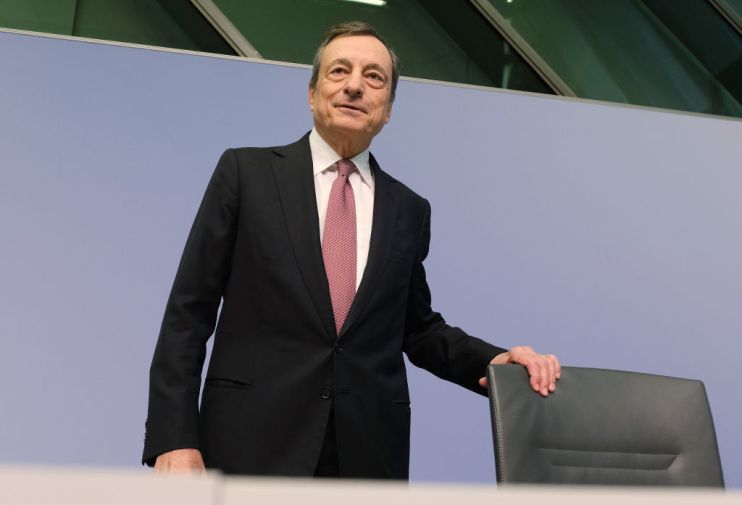Mario Draghi defends his record at final ECB meeting

Mario Draghi defended his use of unconventional monetary policy today at his final rate-setting meeting as European Central Bank (ECB) president, where he left interest rates on hold at record-low levels.
Read more: ‘Super’ Mario Draghi’s ECB odyssey comes to an end
The ECB’s key deposit interest rate will stay at minus 0.5 per cent. The Bank confirmed its massive bond-purchasing programme would begin again on 1 November in a bid to stimulate growth in the bloc.
The decision to leave things as they are came as no surprise to the markets following a public spat among the ECB board over the decision to cut the deposit rate and relaunch bond-buying at its last meeting in September.
Addressing criticisms of the September decision, Draghi pointed to recent weak survey readings and data. He said they had “shown abundantly that the governing council’s determination to act in a substantive manner was justified”.
Draghi also responded to broader criticisms of his eight-year tenure. Many say negative rates and so-called quantitative easing (QE) bond-buying have hurt savers and kept “zombie” companies and banks alive. Others criticise the ECB’s role in the Greek debt crisis.
The outgoing ECB boss encouraged some “historical perspective”. He said: “Frankly if you compare with three, four years ago it’s a good time for Europe, for the Eurozone.”
“Negative rates have stimulated the economy, have affected positively employment,” he said. He added that “improvements in the economy have more than offset negative side effects” from radical monetary policy.
Draghi will hand over to former International Monetary Fund (IMF) chief Christine Lagarde on 1 November. She will have to contend with slowing growth and stubbornly low inflation. Survey data today showed the zone was close to stagnation in September, with German weakness dragging the bloc down.
The 72-year-old Italian said his successor did not need any advice from him: “She knows perfectly well what she has to do.”
Draghi renewed his call for governments to take action to push up the anaemic growth in the Eurozone. “If one wants to see higher rates sooner, fiscal policy should be active,” he said.
Investec economist Victoria Clarke said: “At the end of it all, after eight very significant years, the main question remains whether it will be viva forever for low interest rates and viva for a very long time for QE.”
Draghi admitted he would have preferred to be leaving with interest rates higher, but warned that “the paradigm of reference has changed,” saying rates are likely to “stay low for a very long time”.
Read more: Mario Draghi’s ECB reign ends with Eurozone ‘close to stagnation’
The man who is widely credited with having saved the euro in 2012 said he was most proud of having always pursued the ECB’s price stability mandate. He said his time at the Bank’s helm had taught him that policymakers should “never give up”.
(Image credit: Getty)